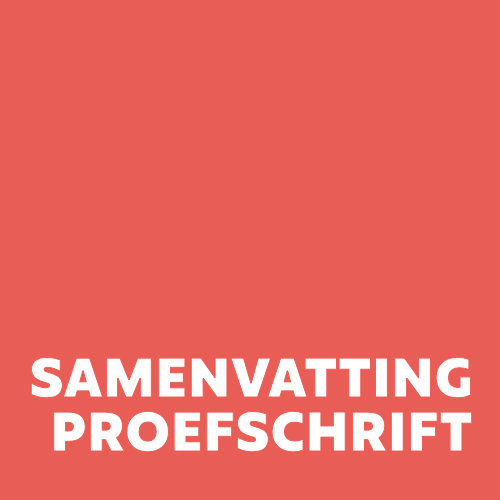In Naam van Status
Schadelijk Sociaal Gedrag als Strategische Zelfregulatie in de Adolescentie
DOI:
https://doi.org/10.54447/JiO.19136Trefwoorden:
Adolescentie, Status, Schadelijk Sociaal Gedrag, ZelfregulatieSamenvatting
Schadelijk sociaal gedrag (zoals pesten of zelfzuchtig gedrag) in de adolescentie kan, anders dan traditioneel gezien, mogelijk ook strategisch ingezet worden door adolescenten die sociaal vaardig zijn om een belangrijk doel in de adolescentie te behalen, namelijk het verkrijgen van een machtspositie. Om dit verder te onderzoeken, beoogt dit proefschrift twee vragen te beantwoorden: Kan schadelijk sociaal gedrag van adolescenten een strategische poging zijn om sociale status te verkrijgen? En hoe kunnen we het statusperspectief (beter) integreren in interventies die beogen schadelijk sociaal gedrag te verminderen? De bevindingen van een metareview bevestigen dat schadelijk sociaal gedrag ook kan voortkomen uit bekwame zelfregulatie. Bevindingen uit aanvullende empirische studies tonen aan dat het vooruitzicht op status, adolescenten kan motiveren om schadelijk sociaal gedrag in te zetten. Daarnaast laten bevindingen van een individuele participanten data meta-analyse zien dat er ruimte is voor verbetering als het gaat om interventies die schadelijk sociaal gedrag beogen te verminderen voor adolescenten boven de twaalf jaar. In dit proefschrift betoog ik dat we dit op twee manieren kunnen doen. Ten eerste, leer adolescenten hoe ze status kunnen bereiken door zich prosociaal te gedragen. Ten tweede, verander peer-normen die schadelijk sociaal gedrag belonen met populariteit.
Abstract
Contrary to traditional beliefs, adolescent harmful social behavior (such as aggression, risky behavior, or selfishness) can also be adaptive behavior employed by adolescents with refined social skills to reach an important goal in adolescence, namely gaining a position of power. To investigate this further, this dissertation examined two questions: Can adolescent harmful social behaviors be strategic attempts to obtain social status? And how can we incorporate this status-pursuit perspective (more) into current interventions that aim to reduce harmful social behavior? Meta-review findings underscore that harmful social behavior may also develop from adequate self-regulation. Findings from complementary empirical studies indicate that the prospect of status affordances can motivate adolescents to engage in harmful social behavior. Individual participant data meta-analytical findings illustrate that there is room for improvement in interventions aiming to decrease harmful social behavior for youth aged twelve and older. In this dissertation, I argue we can do this in two ways. One, teach adolescents how they can achieve status by behaving prosocially. And two, change peer norms that reward harmful social behavior with popularity.
Keywords: Adolescence, Status, Harmful Social Behavior, Self-regulation
Downloads

Downloads
Overige bestanden
Gepubliceerd
Nummer
Sectie
Licentie
Copyright (c) 2024 Maud Hensums

Dit werk wordt verdeeld onder een Naamsvermelding 4.0 Internationaal licentie.





